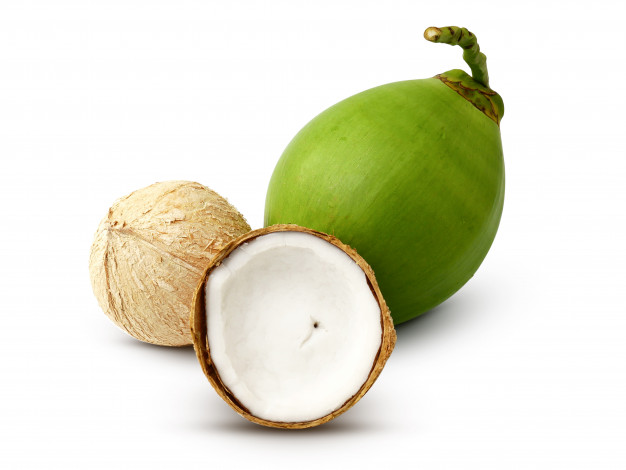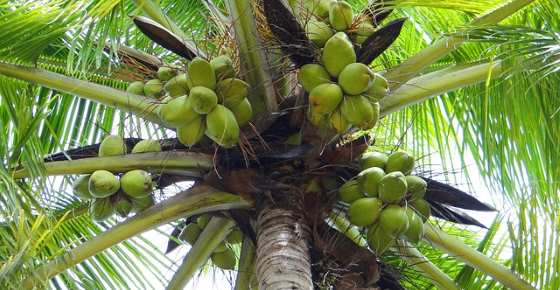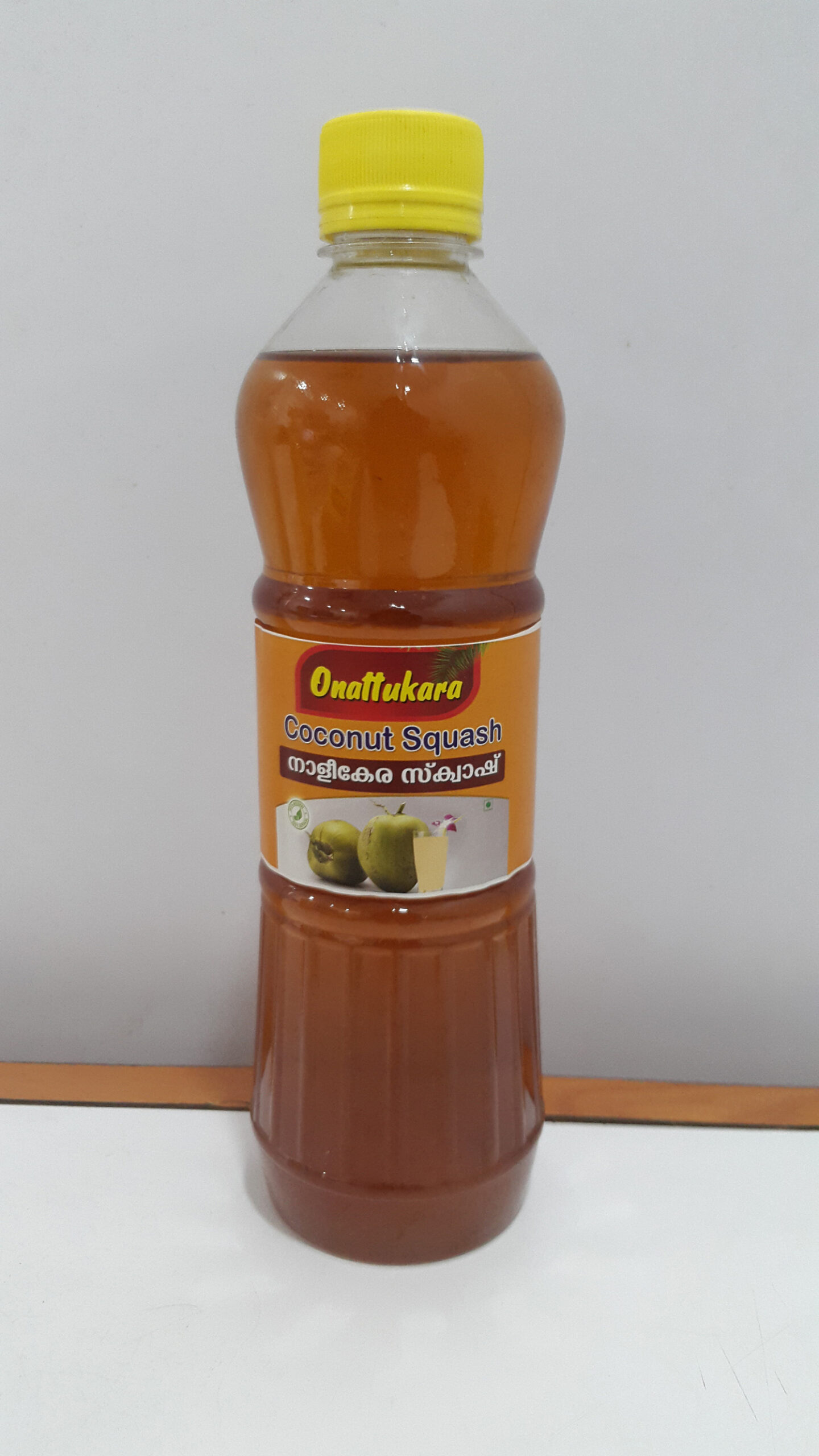
Botanically, the coconut fruit is a drupe, not a true nut. Like other fruits, it has three layers: the exocarp, mesocarp, and endocarp. The exocarp is the glossy outer skin, usually yellow-green to yellow-brown in color. The mesocarp is composed of a fiber, called coir, which has many traditional and commercial uses. Both the exocarp and the mesocarp make up the “husk” of the coconut, while the endocarp makes up the hard coconut “shell”. The endocarp is around 4 mm (0.16 in) thick and has three distinctive germination pores (micropyles) on the distal end. Two of the pores are plugged (the “eyes”), while one is functional.
The interior of the endocarp is hollow and is lined with a thin brown seed coat around 0.2 mm (0.0079 in) thick. The endocarp is initially filled with a multinucleate liquid endosperm (the coconut water). As development continues, cellular layers of endosperm deposit along the walls of the endocarp up to 11 mm (0.43 in) thick, starting at the distal end. They eventually form the edible solid endosperm (the “coconut meat” or “coconut flesh”) which hardens over time. The small cylindrical embryo is embedded in the solid endosperm directly below the functional pore of the endosperm. During germination, the embryo pushes out of the functional pore and forms a haustorium (the coconut sprout) inside the central cavity. The haustorium absorbs the solid endosperm to nourish the seedling.
Coconut fruits have two distinctive forms depending on domestication. Wild coconuts feature an elongated triangular fruit with a thicker husk and a smaller amount of endosperm. These allow the fruits to be more bouyant and makes it easier for them to lodge into sandy shorelines, making their shape ideal for ocean dispersal.
Domesticated Pacific coconuts, on the other hand, are rounded in shape with a thinner husk and a larger amount of endosperm. Domesticated coconuts also have more amounts of coconut water.
These two forms are referred to by the Samoan terms niu kafa for the elongated wild coconuts, and niu vai for the rounded domesticated Pacific coconuts.
A full-sized coconut fruit weighs about 1.4 kg (3 lb 1 oz). Coconuts sold domestically in coconut-producing countries are typically not de-husked. Especially immature coconuts (6 to 8 months from flowering) sold for coconut water and softer jelly-like coconut meat (known as “green coconuts”, “young coconuts”, or “water coconuts”), where the original coloration of the fruit is more aesthetically pleasing.
Whole mature coconuts (11 to 13 months from flowering) sold for export, however, typically have the husk removed to reduce weight and volume for transport. This results in the naked coconut “shell” with three pores more familiar in countries where coconuts are not grown locally. De-husked coconuts typically weigh around 750 to 850 g (1 lb 10 oz to 1 lb 14 oz). De-husked coconuts are also easier for consumers to open, but have a shorter postharvest storage life of around two to three weeks at temperatures of 12 to 15 °C (54 to 59 °F) or up to 2 months at 0 to 1.5 °C (32.0 to 34.7 °F). In comparison, mature coconuts with the husk intact can be stored for three to five months at normal room temperature .
Source: https://en.wikipedia.org/wiki/Coconut#Fruit



